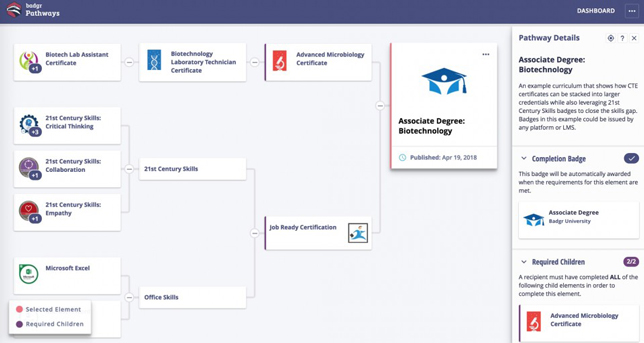Digital Badges Initiative to Support Professional Development in Washington State
The Washington State Board for Community & Technical Colleges (SBCTC) is teaming up with software development company Concentric Sky on a digital badging initiative that will use Badgr digital badges to document professional development accomplishments of faculty, administrators and staff across the system's 34 institutions.
Each college will be able to implement badging as well as guided pathways within their courses or programs, particularly for co-curricular activities that typically aren't represented on transcripts. Examples of such programs include internships, community service and museum activities.
Badgr's open badges are verifiable, shareable and portable, so users can take documentation of their learning with them wherever they go. The platform is certified compliant with version 2.0 of the IMS Global Learning Consortium's Open Badges Specification. With Badgr Pathways, badges from Badgr or any other Open Badges compliant platform can be stacked to create "learning pathways" that are shareable across institutions.

Badgr Pathways
As part of the four-year project, SBCTC will also contribute to the Badgr open source project.
"Concentric Sky's leadership in developing open standards and their deep domain knowledge in education makes them a natural partner for us," said Steve Gance, policy analyst at SBCTC, in a statement. "The open source nature of Badgr is very attractive to us and we're looking forward to helping further develop the platform for the benefit of our colleges."
About the Author
Rhea Kelly is editor in chief for Campus Technology, THE Journal, and Spaces4Learning. She can be reached at [email protected].